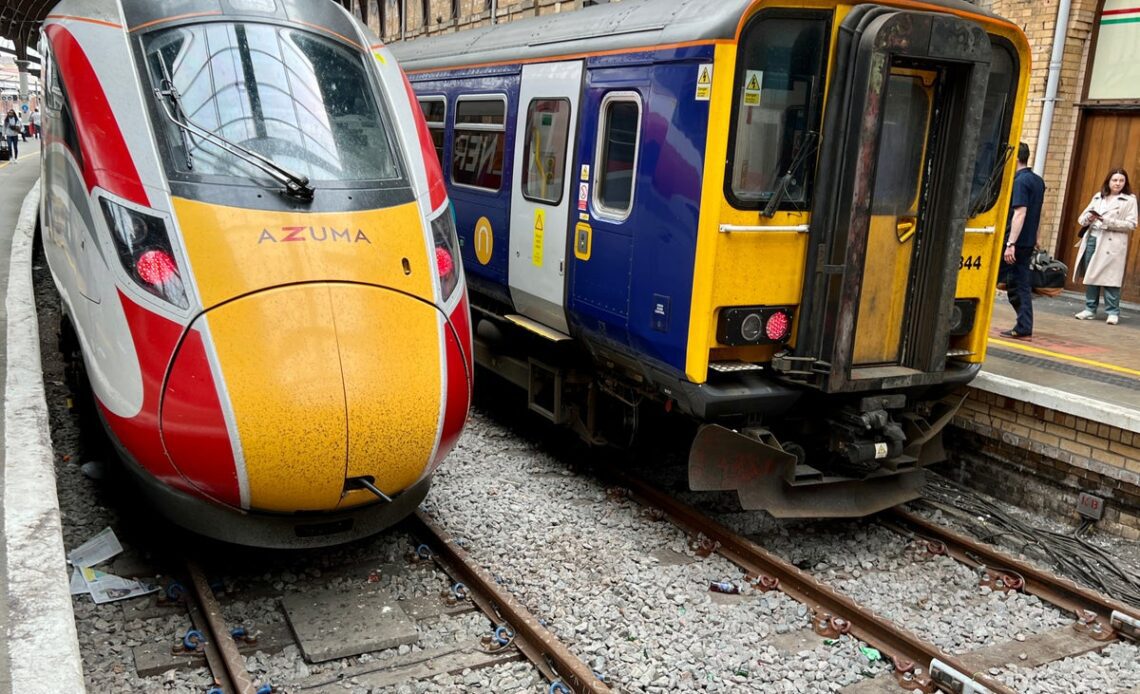The train drivers’ union, Aslef, has given notice to 12 train operators that its members will walk out on Saturday 1 and Wednesday 5 October.
The first date is the day before the London Marathon, when many runners would plan to travel by train to the capital. The Conservative Party conference also opens in Birmingham on 2 October and ends on the day of the second strike.
A stoppage had been planned for Thursday 15 September, but within hours of the news of the death of the Queen the union said it was “postponing its industrial action”.
The walk-outs are the latest in a series of stoppages by rail workers through the summer.
These are the key questions and answers.
Which train operators will be affected by the strike?
Six of the train operators are mainly intercity:
- Avanti West Coast
- CrossCountry
- GWR
- Hull Trains
- LNER
- TransPennine Express
The other six are mainly commuter operators:
- Chiltern
- Greater Anglia
- London Overground
- Northern
- Southeastern
- West Midlands Trains
Why are the strikes happening?
Aslef says: “Most train drivers haven’t had a pay increase since 2019. When inflation goes up and pay doesn’t, that’s a real-terms pay cut.
“Senior managers in our industry take home huge salaries; rail operators have paid dividends to their shareholders right through the pandemic, and the rolling stock companies (who own the trains and lease them back out) have made billions.
“The claim that there’s no money left to pay rail workers properly is just not true.”
Strike ballots among train drivers have typically ended 90:10 in favour of strikes, on high turn-outs.
Will any trains run on the strike days?
Yes. Passengers can expect to be told to attempt to travel only if essential, but as with previous strike days many trains will run.
The train operators fall into three groups:
- Unaffected, because drivers will be working normally. This includes East Midlands Railway, Grand Central, Lumo, Merseyrail, ScotRail and Transport for Wales, as well as the Great Northern/Southern/Thameslink combo operating north and south of London.
- Running a partial service: past experience suggests most of the strike-hit companies will be in this category, including Avanti West Coast, CrossCountry, GWR, Hull Trains, LNER, Northern and TransPennine Express.
- No trains: Southeastern and London Overground have previously been in this category.
Where partial services are operated, they may be skeletal. For example, on previous strike days the main GWR service has been an hourly train each way between…
Click Here to Read the Full Original Article at The Independent Travel…
